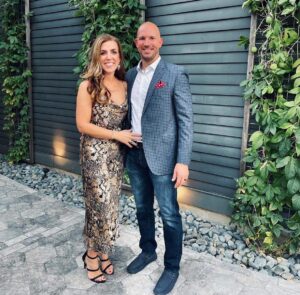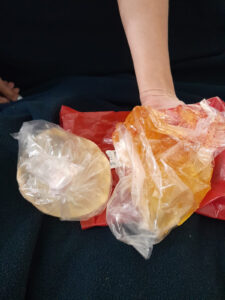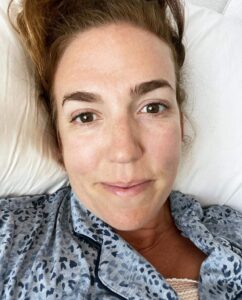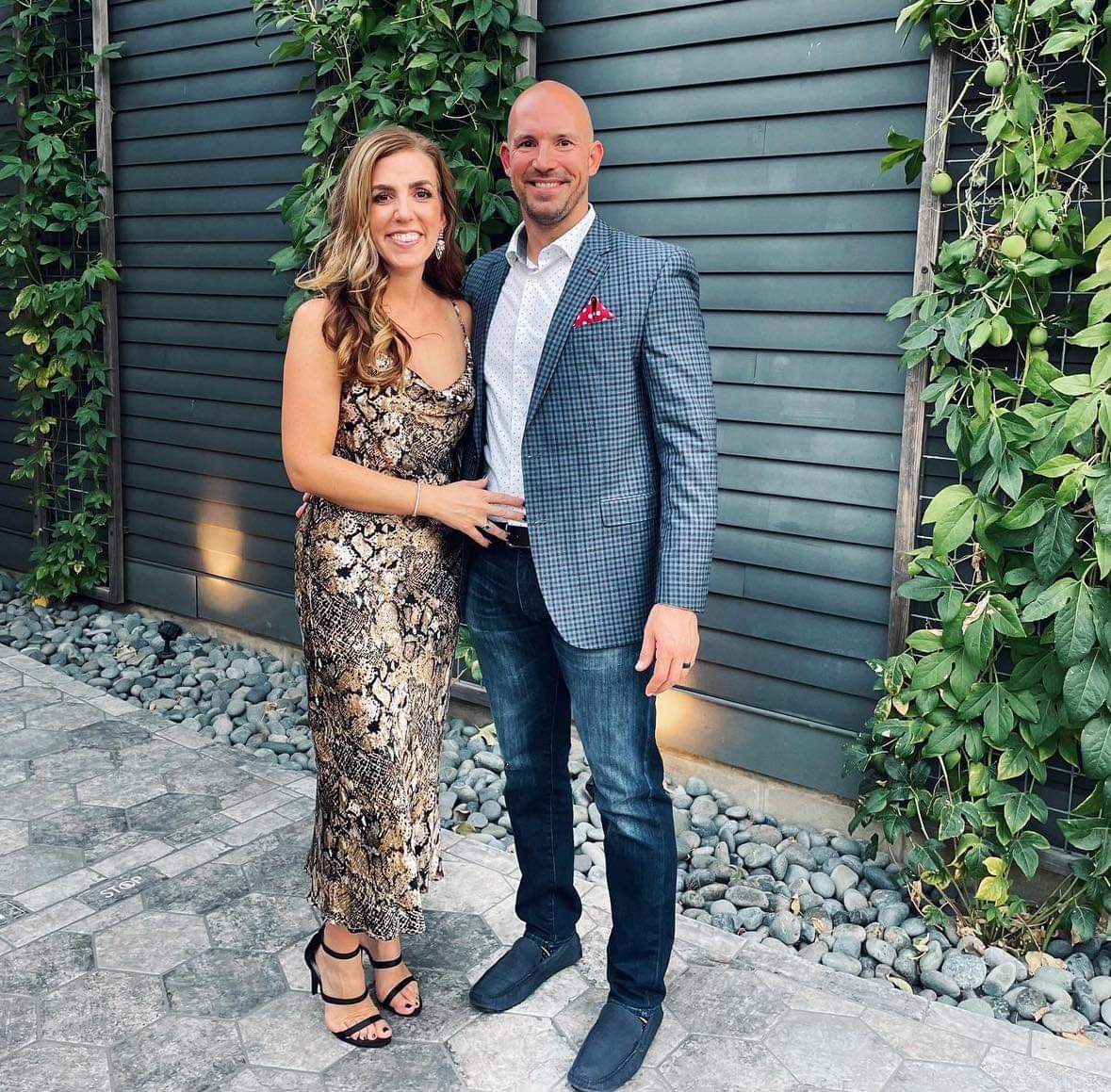Addressing the Causes, Symptoms and Solutions Regarding Breast Implant Illness
Writer / Renee Larr
Photography Provided
In the pursuit of boosting their self-esteem, many women turn to breast augmentation surgery. This is why a lot of women consult professionals before undergoing one.
However, what happens when these implants, meant to enhance their appearance, end up making them sick? Breast implant illness (BII) is a term used to describe a range of symptoms that some individuals experience after undergoing breast implant surgery for either reconstruction or cosmetic purposes.
purposes.
Elizabeth Mack, a resident of Fishers, decided to get breast implants in 2017 after nursing her three children for a total of 36 months. She wanted to regain her pre-pregnancy look and consulted with two different surgeons before making her decision. However, within six months of the surgery, she began experiencing unexplained health issues.
“I quickly gained over 15 pounds but couldn’t figure out why,” Mack says. “In the following year I developed anxiety I’d never experienced. I found myself dizzy a lot, my memory was spotty, I lost so much of my hair, and my weight gain continued without explanation. I had vertigo regularly, heart palpitations occasionally and fatigue that dragged me down daily. My circulation decreased, inflammation increased and my ability to sleep was declining weekly.”
By 2019 Mack was also dealing with strep-like illnesses every six weeks or so, in addition to the symptoms above. Despite her misery, her doctor assured her that her lab results were normal and her overall health seemed fine. However, everything changed for Mack in February 2021 when she came across an Instagram post.
“The woman’s symptoms were my same symptoms,” Mack says. “I was stunned and immediately began researching to learn more. I learned tens of thousands of women experience similar symptoms or worse – autoimmune diseases, crippling pain, cancer and more – who all have had implants. There’s a Facebook group where over 165,000 women connect to support each other through the illness. Their bodies, like mine, rejected the foreign objects in a multitude of ways.”
Dr. Christine Kelley says there is currently no clear understanding of which types of patients are at risk for breast implant illness. She says most patients presenting with suspected BII do not have a prior personal history of autoimmune or connective tissue disease. Some present with a family history of those conditions, but this is also uncommon.
“The symptoms are nonspecific and can be associated with other conditions,” Kelley says. “Generally the symptoms are consistent with chronic systemic inflammation. The most common symptoms are fatigue, brain fog, joint and muscle pain and unexplained skin rashes. Hair loss is frequently reported. Dryness symptoms are common, including dry skin, hair, eyes and mouth. Gastrointestinal symptoms are similar to irritable bowel and include constipation, diarrhea, bloating, reflux and abdominal pain. Neurologic symptoms are also reported including dizziness, numbness, tingling and twitching. Heart palpitations are common. Some women develop migraines. Others report hormonal symptoms such as heavy, irregular periods, temperature intolerance and infertility.”
Due to the lack of knowledge surrounding breast implant illness, the presence of nonspecific symptoms, and the stigma associated with breast implants, diagnosing BII can be challenging, time consuming and expensive. BII is often met with skepticism in the traditional medical field. Kelley says the diagnosis is considered one of exclusion, meaning that other usual, generally accepted sources of the symptoms are not found upon examination or testing. She also says patients respond poorly to typical treatments for those symptoms.
Many women are left to navigate their own path or rely on other women’s experiences in similar situations. Kelley says that the role of the implant is often considered late in the diagnostic process. She has observed women coming to her office seeking implant removal to see if their symptoms improve. However, removing implants should not be taken lightly, as it carries many risks.
“Since there is no conclusive association of breast implants with systemic
symptoms yet, many physicians and surgeons recommend an exhaustive workup to
 reduce the potential for unhelpful surgery and loss of breast enhancement,” Kelley says. “At a minimum, patients should consider screening for metabolic, vitamin, and hormonal
reduce the potential for unhelpful surgery and loss of breast enhancement,” Kelley says. “At a minimum, patients should consider screening for metabolic, vitamin, and hormonal
issues with basic, readily available labs to see if treating those issues helps, and to be in the best possible condition for surgery. Some patients intuitively sense the implant
is causing problems for them, or they may have other issues of implant dissatisfaction
that cause them to seek explant without an in-depth evaluation for other causes.”
In 2021 Mack underwent surgery to remove her implants. She acknowledges that the road to recovery has been long, but she is grateful to be on the healing side. She shares her story, hoping it might save someone else’s life.
“I have been actively working with a functional health doctor ever since, to detox my body and help heal the physical symptoms for about 18 months after, including pain, fatigue, inflammation and the extra weight,” Mack says. “Today I still work closely with that functional doc to support the autoimmune disease that the implants caused. Those same implants also threw my body into peri-menopause, so we are actively working to balance my hormones so I can feel healthy and live an active, thriving lifestyle.”
Kelley emphasizes that although BII is poorly understood, this does not negate its reality. Patients experiencing these symptoms are going through a genuine and impactful experience. Kelley believes that the lack of knowledge should not be an excuse to dismiss patients’ complaints.
“This is a call for compassionate listening and counseling, public awareness and discussion, diligent data collection, and dedicated scientific research,” Kelley says. “Fortunately, these efforts are burgeoning. The attitude towards BII is beginning to change. Hopefully we will have sufficient knowledge to more easily predict, diagnose and treat this complex condition in the foreseeable future.”
Diana Vogel suffered from BII for 18 years before making the difficult decision to explant after suffering a laundry list of inexplicable medical issues. She says she learned about the debilitating condition from a naturopathic doctor.
“When I learned about the symptoms, I felt this sense of relief,” Vogel says. “Finally, something made sense as to why I had been suffering from so many symptoms that doctors were not able to explain. I was also so mad – mad at myself, mad at the doctors, mad at the life I had lived with my implants. Honestly, I was disgusted. I couldn’t wait to get them out.”
What many of these women want is simply to be heard, but most feel validated when their symptoms resolve after explantation. The palpable signs of healing manifest in different ways for everyone. Jennifer Fyffe says she waited a whole year to assess how she felt after removing her implants.
“I haven’t had one symptom since removal,” Fyffe says. “I have my life back and am more active than ever at 53. As a bonus, I thought my hair looked different three months after surgery. I have been 100% white/gray for at least 10 to 12 years, and my hair is colored every three weeks. At three months I saw my original color, red, growing all over my head and new, three-inch hair growth. Overall, more than half of my hair reversed from white to red. Even though I knew I already felt better, and the cause was the implants, it was a truly tangible sign that they were poisoning my body.”
There cane also be some guilt or stigma attached to one’s choice to get breast implants. Alison Gatz underwent a preventative double mastectomy after both her mother and sister were diagnosed with inflammatory breast cancer. She said she sometimes feels shame in sharing her story because she did have breast implants before her double mastectomy. Gatz started experiencing BII symptoms after her reconstructive surgery. Ultimately she made the painful decision to explant and follow up with deep inferior epigastric perforator flap reconstructive surgery.
“I sometimes feel shameful in sharing that part of my story because people think, ‘Well, you chose to get the implants so it’s your fault you’re sick,’” Gatz says. “It’s almost like if smokers get lung cancer. It’s not fair but it’s the perception. Then, self-doubt comes into play. Luckily, for me, my mastectomy was preventative, but for other women healing after breast cancer, it can be a huge issue.”
For more information on BII, visit healingbreastimplantillness.com.






